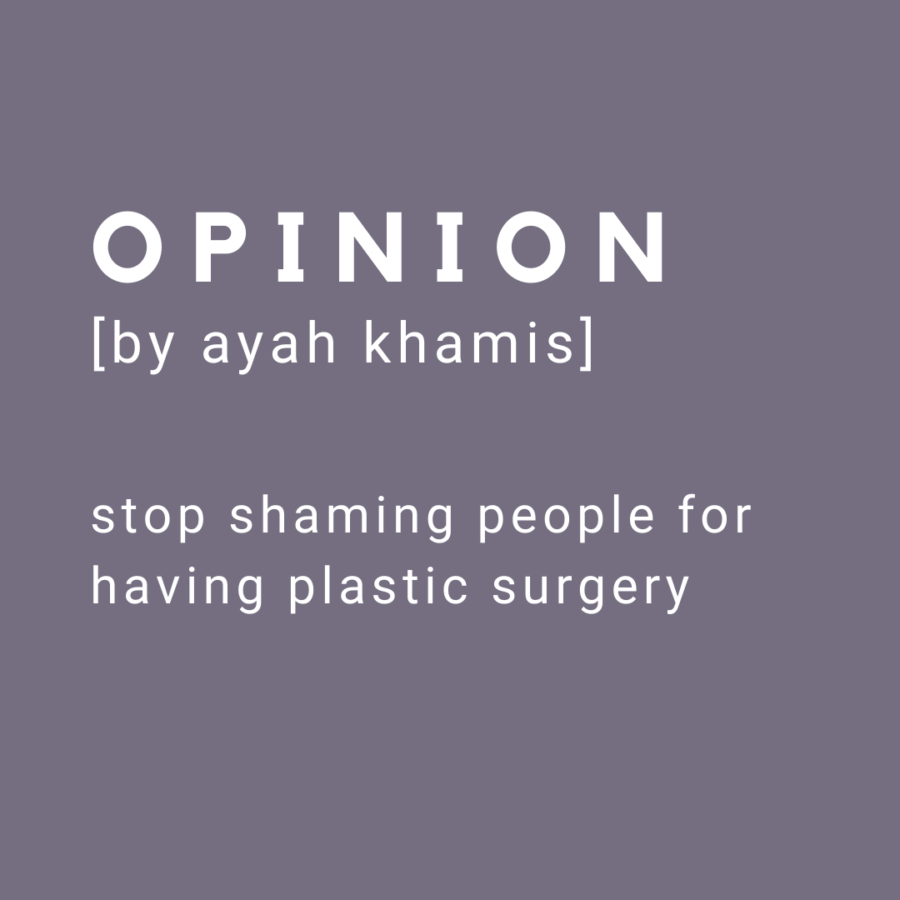Opinion: Stop Shaming People for Having Plastic Surgery
An anti-plastic surgery sentiment pervades society, despite its growing popularity. According to the American Society of Plastic Surgeons, in the United States, about $16.7 billion was spent on and there were more than 15.5 million cosmetic procedures in 2020. A study published by the Clinical Psychological Science in 2013 concluded that cosmetic surgery patients experienced “positive “outcomes” in areas including “anxiety, depression, body dysmorphia, goal attainment, quality of life” and “self-esteem.”
Despite the overwhelming benefits people face from having cosmetic surgery, there remains a toxic culture of people being scrutinized for receiving it. Cosmetic surgery often is synonymous with being “fake” and “plastic.” Strangely, looking and going through natural processes like aging and weight gain equates to being “unattractive” and “gross.” The hypocrisy is unreal.
When people resort to plastic surgery to try to fix the “flaws” that society continuously draws attention to, they may be reprimanded. They are often assumed to be insecure and cannot love themselves without altering their body.
In 2012, the Huffington Post reported the story of Nadia, a 14-year-old who was bullied so horrifically for her ears, being called “Dumbo” and “elephant ears.” She was granted free cosmetic surgery from a charity to end the bullying.
Another instance is when Insider reported a mom allowing her 13-year-old daughter to get a rhinoplasty in Las Vegas Nevadas after her daughter faced intense bullying for her nose size. The mom found the comments made about her daughter’s nose “heartbreaking.” Her daughter went as far as staying up late to try to figure out which makeup tricks conceal her nose. The surgery made the bullying come to an end.
Society plays a role in people resorting to plastic surgery (not all the time). When someone ages, they are put under scrutiny. Likewise, when someone looks young for their age, they are accused of receiving cosmetic surgery (despite that being no one’s business). Society has set ridiculous beauty standards and when someone does not follow these standards, they are deemed as outcasts and ridiculed.
Society tends to put all their effort in analyzing people’s appearances rather than their character. People are limited to just their appearances, which is the true issue. There should be more focus directed towards someone’s qualities and characters rather than someone’s appearances.
On social media, people are placed under a constant microscope. All natural processes are immediately faced with backlash by critics. People need to focus on what people have to offer in the world. Although unattainable, people should end their habits of criticizing people online.


